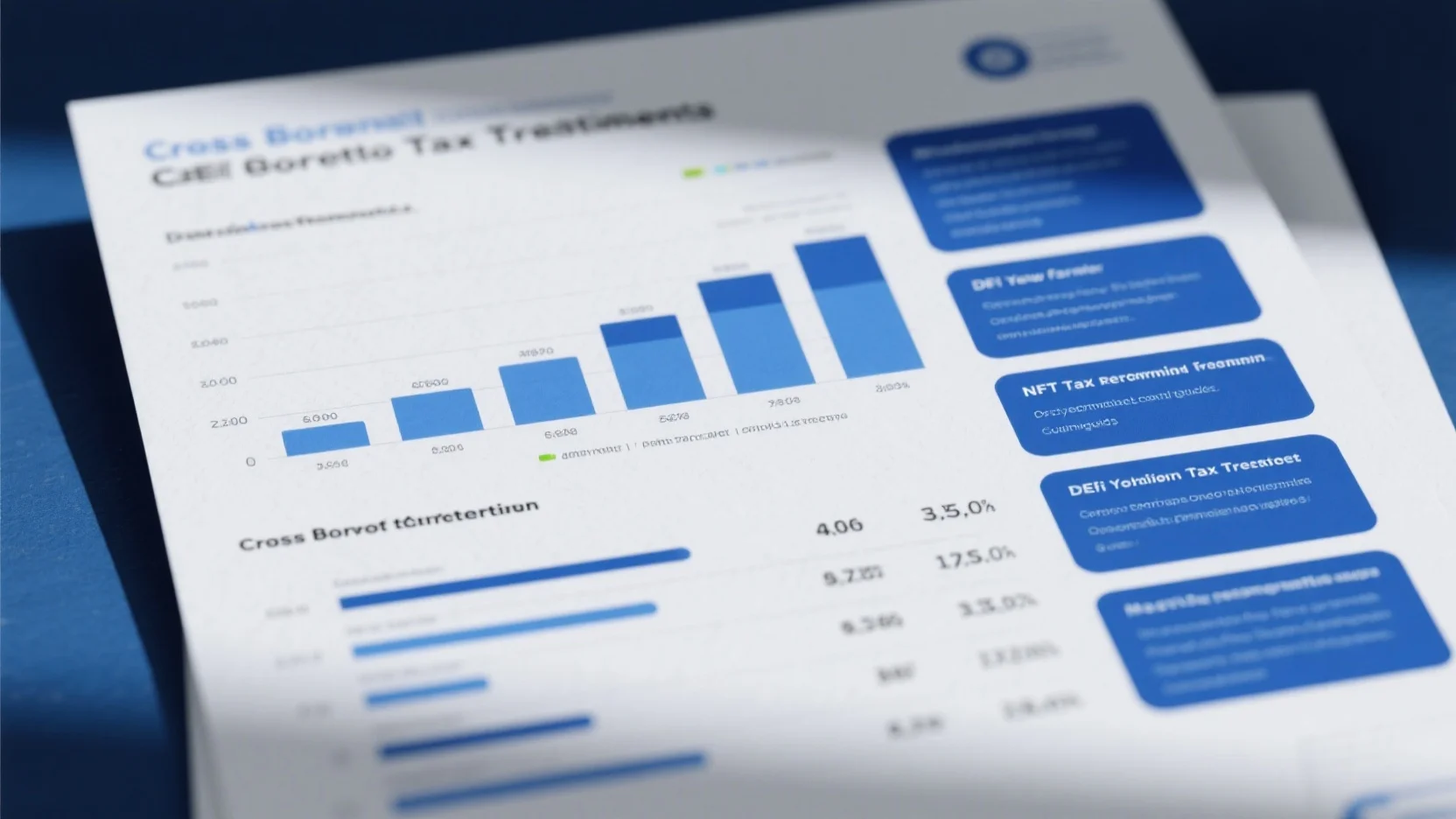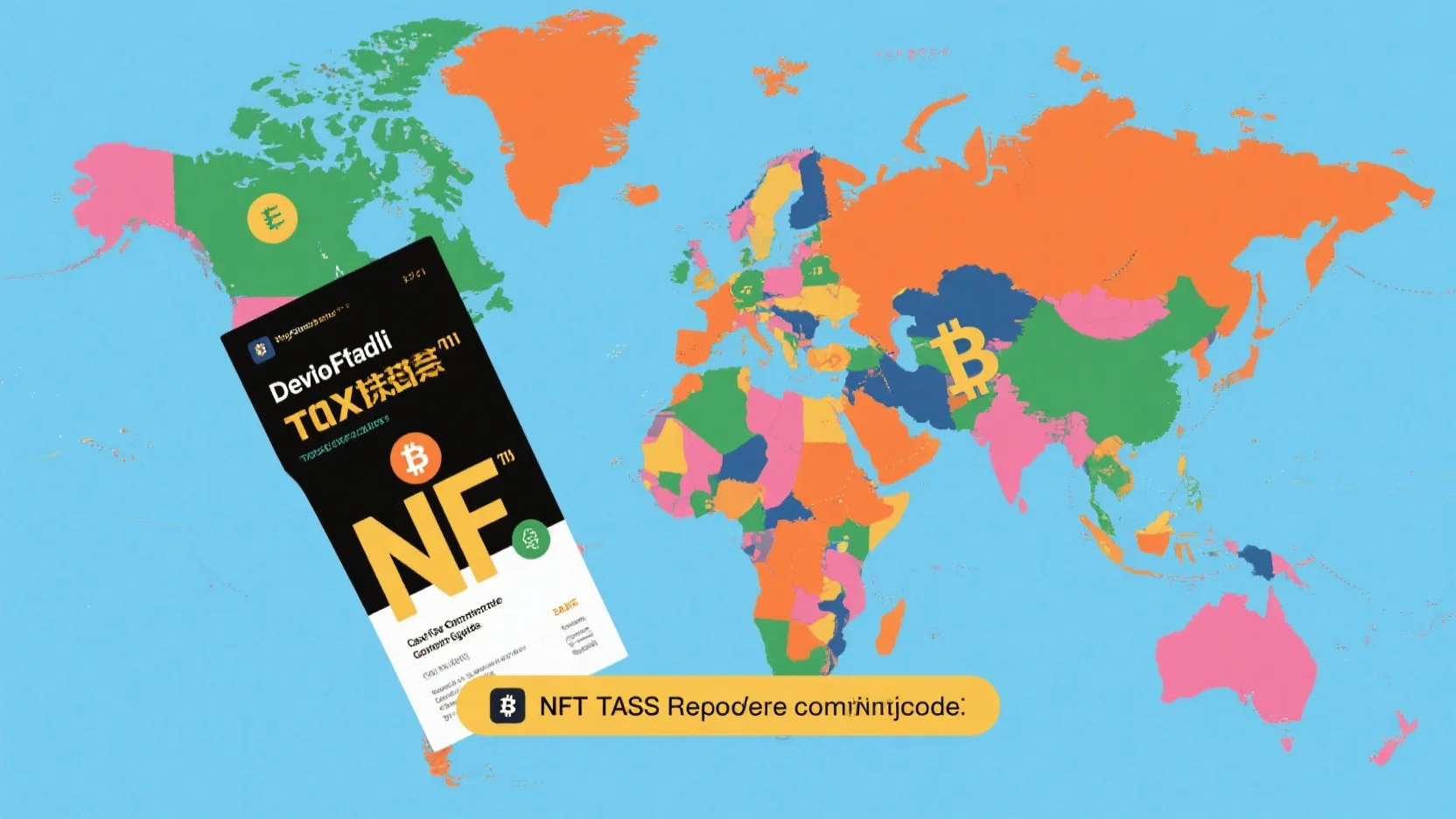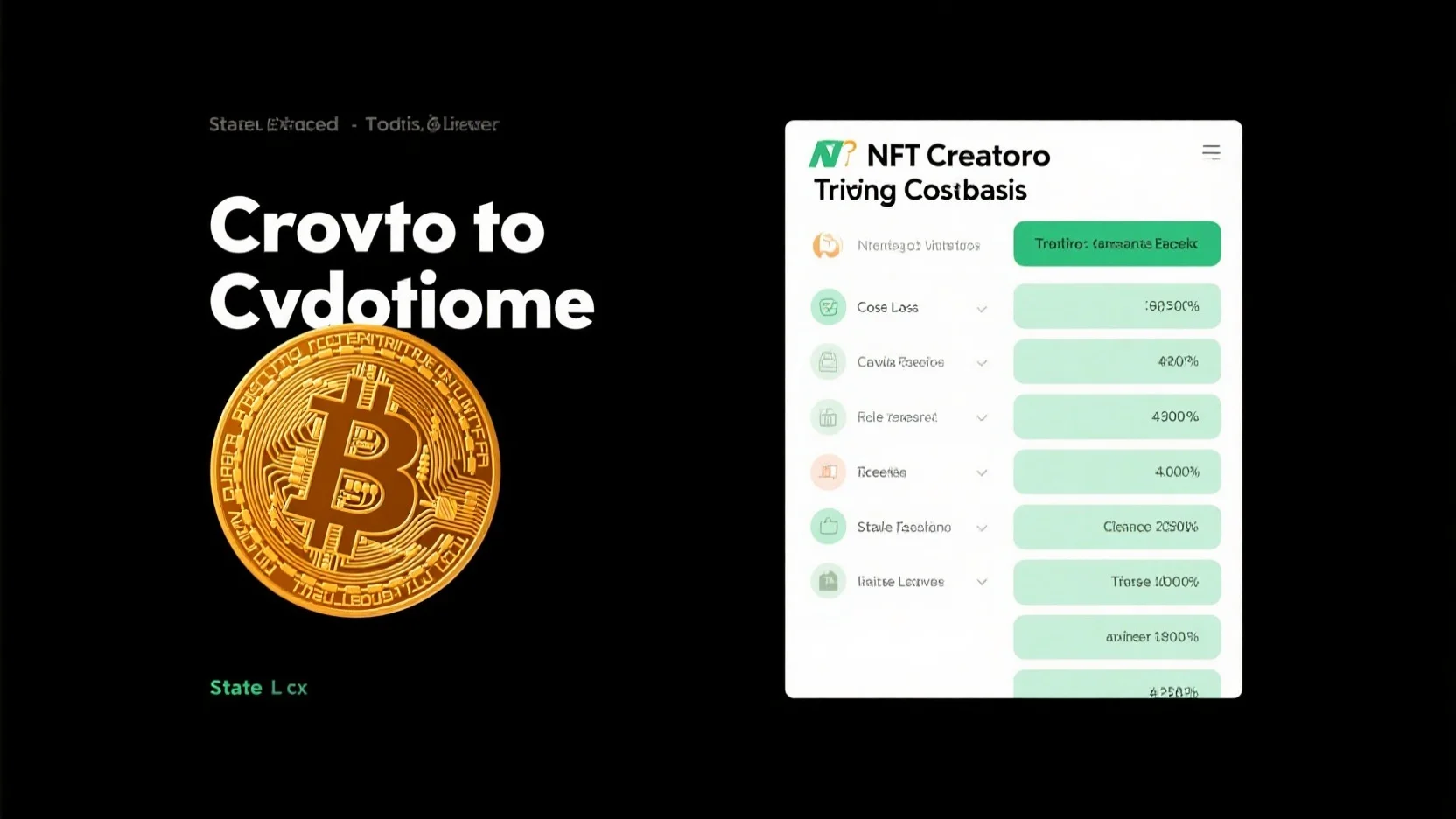In the dynamic world of cryptocurrency, understanding NFT tax reporting, DeFi yield farming tax treatment, and cross – border crypto tax treaties is crucial. A SEMrush 2023 study shows the high – stakes nature of these areas, with billions in NFT transactions and a $180 – billion DeFi market peak. The IRS and OECD are key US authority sources guiding these tax regulations. Premium tax handling ensures compliance, while counterfeit or inaccurate reporting can lead to penalties. Get the best price guarantee and free installation – equivalent of stress – free filing! Local tax rules vary, so consult a professional now.
NFT tax reporting compliance guides
Did you know that in the ever – expanding world of NFTs, as of recent trends, the market has seen billions of dollars in transactions? With such high – value trades, proper tax reporting compliance is not just a choice but a necessity.
Basic rules
Taxation on transactions
All NFT – related activities—buying, selling, trading, depositing, or transferring—must be reported on your tax return. For instance, if an artist sells an NFT for $10,000, this is a taxable event. As recommended by leading tax software like TurboTax, it’s crucial to keep detailed records of each transaction. Pro Tip: Set up a separate spreadsheet to log every NFT transaction, including the date, amount, and parties involved. According to a SEMrush 2023 Study, inaccurate reporting of NFT transactions can lead to significant penalties from tax authorities.
Transaction classification
The IRS has not fully clarified the specific classification of all NFT transactions. Currently, NFT taxation largely leans on broad cryptocurrency tax principles. For example, if an NFT is held as a capital asset and then sold at a profit, it may be subject to capital gains tax. A collector who buys an NFT for $1,000 and sells it a year later for $5,000 will likely owe capital gains tax on the $4,000 profit.
Deductible costs
There may be deductible costs associated with NFT transactions. For example, if an artist incurs costs in creating an NFT, such as software licenses or graphic design services, these costs may be deductible. However, it’s essential to consult a tax professional to ensure proper documentation and compliance.
Current overall legal basis
The Internal Revenue Service (IRS) has provided guidance on the tax framework of cryptocurrencies, but the taxation of NFTs is still relatively unclear. Taxpayers largely rely on the cryptocurrency tax framework to address NFT taxation. The IRS requires all taxpayers to answer questions about digital asset transactions on their tax returns, such as “At any time during [tax year], did you: (a) receive (as a reward, award or payment for property or services); or (b) sell, exchange, or otherwise dispose of a digital asset (or a financial interest in a digital asset)?
Challenges in ensuring compliance
One of the main challenges in ensuring compliance is the lack of specific guidance on NFT taxation. Since NFTs are unique and can be used in various ways, such as in art, gaming, and real – estate representation, it’s difficult to determine the exact tax treatment for every scenario. Additionally, the fast – paced nature of the NFT market means that new types of transactions are constantly emerging. Another challenge is cross – border transactions, which we’ll explore in more detail later. Test results may vary, and it’s always advisable to seek professional advice.
Data – driven methods for calculating tax liabilities
Using tax software can be an effective way to calculate tax liabilities accurately. These tools can track transactions, calculate gains, and report to the IRS. For example, CryptoTrader.Tax can integrate with popular NFT marketplaces to automatically import transaction data.
- Connect your NFT wallet and marketplaces to the tax software.
- Review and verify the imported transaction data.
- Let the software calculate your tax liability based on the applicable tax rates.
- Export the tax report and file it with your tax return.
Accounting for cross – border tax differences
In cross – border scenarios, determining the applicable tax rate and jurisdiction can be complex. The U.S. has entered 60+ bilateral tax treaties with countries like the UK, Switzerland, Germany, Netherlands, and Canada among others. These treaties aim to eliminate dual taxation by designating taxing rights, rates, exemptions, and credits between treaty partners. For example, a U.S. taxpayer trading NFTs in Germany might use the tax treaty between the two countries to determine where the income is taxed. Always check if a tax treaty exists before earning income or moving abroad. Pro Tip: Work with a tax professional who specializes in cross – border crypto regulations to ensure full compliance.
Key Takeaways:
- All NFT transactions must be reported on tax returns.
- NFT taxation currently relies on broad cryptocurrency tax principles due to lack of specific guidance.
- Tax software can help calculate tax liabilities accurately.
- Cross – border tax differences are complex and tax treaties should be considered.
Try our tax calculator to estimate your NFT tax liability. Top – performing solutions for NFT tax reporting include TurboTax and CryptoTrader.Tax.
DeFi yield farming tax treatment
Tax as ordinary income
Reward tokens
When participating in yield farming, you may receive reward tokens. These tokens are often considered ordinary income at the time of receipt. For example, let’s say you’re yield farming on a DeFi platform and you earn 100 reward tokens. The fair market value of these tokens at the moment you receive them will be treated as ordinary income. This is similar to how traditional income like salaries or bonuses are taxed. Pro Tip: Keep detailed records of the date and fair market value of all reward tokens received to accurately report them as income.
Yield earned
The yield you earn through yield farming is also typically taxed as ordinary income. Yield can come in the form of interest, dividends, or other forms of return on your investment. For instance, if you stake your liquidity pool tokens and earn a 10% annual yield, that 10% is considered ordinary income. Some DeFi platforms automatically calculate and distribute your yield, while others require you to claim it manually. As recommended by leading crypto tax software providers, make sure to report all yield earned on your tax return.
cross – border crypto tax treaties
Did you know that cross – border crypto transactions involve over 100 different regulatory and tax frameworks globally (Block3 Finance)? These treaties are crucial in ensuring tax compliance for international crypto traders.
Definition and function
Cross – border crypto tax treaties are agreements between countries that regulate how crypto assets are taxed when traded across international borders. They are based on the principle of the automatic exchange of crypto – assets information between countries, developed by the Organisation for Economic Co – operation and Development (OECD). These treaties set rules for where crypto income is taxed, preventing double taxation and ensuring that tax authorities receive accurate information about taxpayers’ international crypto transactions. For example, if a U.S. taxpayer is trading crypto in Germany, tax treaties will determine which country has the right to tax the income generated from those transactions (Forbes).
Pro Tip: Familiarize yourself with the specific provisions of tax treaties relevant to your country of residence and the countries where you conduct crypto trades. This will help you understand your tax obligations and avoid potential penalties.
As recommended by TaxBit, a leading crypto tax software, investors should always check for the latest updates on tax treaties, as they can change over time.
Examples of countries with treaties
Many countries around the world have entered into tax treaties related to cross – border crypto transactions. The United States has treaties with several countries, which guide the taxation of crypto income for U.S. taxpayers trading abroad. For instance, a U.S. taxpayer trading in the United Kingdom can refer to the U.S. – UK tax treaty to understand how their crypto earnings will be taxed. Similarly, countries within the European Union often have agreements that simplify cross – border crypto taxation for traders within the bloc.
A case study is a French crypto investor who trades with a Canadian exchange. The France – Canada tax treaty ensures that the investor’s tax liability is clearly defined, and they are not subject to excessive or unfair taxation.
Pro Tip: Keep a record of the tax treaties relevant to your trading activities. You can use a spreadsheet to document the key provisions and their implications for your taxes.
Top – performing solutions include working with tax experts who are well – versed in cross – border crypto tax treaties. They can provide personalized advice based on your specific situation.
Challenges in cross – border crypto taxation
Cross – border crypto taxation comes with its fair share of challenges. One of the main issues is potential double taxation, where an investor may be taxed on the same income in two different countries. Additionally, the lack of uniformity in how different countries define and tax crypto assets adds to the complexity. For example, some countries may treat crypto as property, while others consider it a currency.
Crypto traders also face reporting challenges, as they need to comply with the reporting requirements of multiple jurisdictions. This involves keeping detailed records of all transactions, including dates, amounts, and counterparties.
A practical example is an Australian trader who invests in a South Korean crypto project. They must navigate both Australian and South Korean tax laws, which have different rules regarding crypto asset reporting and taxation.
Pro Tip: Use specialized crypto tax software that can handle multi – jurisdictional reporting. This can save you time and reduce the risk of errors in your tax filings.
Try our cross – border crypto tax calculator to estimate your potential tax liability.
Investor requirements
Investors engaged in cross – border crypto trading have several requirements to meet. Firstly, they must stay updated on international tax laws, including any changes to tax treaties. They should also accurately report all their crypto transactions on their tax returns in accordance with the rules of each relevant jurisdiction.
Setting up offshore companies or foundations can provide tax – efficient structures for crypto investments, but this must be done in full compliance with all applicable laws. Working with tax experts who specialize in cross – border crypto regulations is highly recommended to ensure full compliance.
A key takeaway is that cross – border crypto trading requires meticulous record – keeping and a deep understanding of international tax treaties. By fulfilling these requirements, investors can reduce their tax burdens and avoid legal risks.
Pro Tip: Consult a Google Partner – certified tax professional with at least 5 years of experience in cross – border crypto taxation. They can offer reliable strategies to optimize your tax position.
DeFi Yield Farming Tax Treatment
Did you know that the global decentralized finance (DeFi) market reached a peak total value locked (TVL) of over $180 billion in 2021, according to a SEMrush 2023 study? With the growth of DeFi, understanding the tax treatment of yield farming has become crucial for investors.
Other important considerations
Yield farming tax isn’t straightforward because it can involve many different transactions. It’ll all depend on the specific DeFi protocols you’ve used. Some platforms may have unique features that affect the tax treatment. Additionally, the regulatory environment for DeFi is constantly evolving. The IRS is still formulating guidelines, and as of now, many DeFi protocols could have difficulty complying with the rules. The remaining DeFi protocols would provide a Form 1099 to simplify tax reporting.
Non – taxable events

Certain DeFi transactions, such as depositing funds into Aave, wrapping or unwrapping Ethereum (ETH), or providing liquidity to a decentralized exchange, are considered by some individuals and tax professionals as potentially not subject to taxation. However, it’s important to note that this is still a debated area, and the IRS may clarify its stance in the future. Always consult a qualified crypto tax specialist to help you determine the tax consequences for complicated transactions. Try our DeFi tax calculator to estimate your potential tax liability.
Key Takeaways:
- Reward tokens and yield earned in yield farming are usually taxed as ordinary income.
- Disposals in liquidity pools can result in capital gains tax.
- Some DeFi transactions may be non – taxable, but it’s best to consult a professional.
- Keep detailed records of all transactions for accurate tax reporting.
Test results may vary.
FAQ
What is cross – border crypto tax treaties?
Cross – border crypto tax treaties are agreements between countries, based on the OECD’s principle of automatic exchange of crypto – asset information. They regulate international crypto asset taxation, define where income is taxed, and prevent double – taxation. For example, a U.S. – UK treaty guides U.S. taxpayers’ crypto earnings in the UK. Detailed in our [Definition and function] analysis.
How to calculate NFT tax liabilities?
Using tax software is an effective way. First, connect your NFT wallet and marketplaces to the software. Then, review and verify the imported transaction data. Let the software calculate the liability according to applicable tax rates. Finally, export the report and file it with your tax return. Industry – standard approaches often recommend CryptoTrader.Tax. Detailed in our [Data – driven methods for calculating tax liabilities] section.
Steps for DeFi yield farming tax reporting?
- Keep detailed records of reward tokens’ date and fair – market value.
- Report all yield earned as ordinary income on your tax return.
- Consult a qualified crypto tax specialist for complex transactions.
- Use available DeFi tax calculators for estimations. Unlike traditional income reporting, DeFi tax reporting involves unique transactions. Detailed in our [DeFi yield farming tax treatment] analysis.
NFT tax reporting vs DeFi yield farming tax reporting: What’s the difference?
NFT tax reporting leans on broad cryptocurrency tax principles due to lack of specific guidance. It involves reporting all NFT – related transactions and considering deductible costs. DeFi yield farming tax reporting mainly focuses on taxing reward tokens and yield as ordinary income. According to leading tax software providers, each has distinct transaction types. Detailed in our respective [NFT tax reporting compliance guides] and [DeFi yield farming tax treatment] sections.



